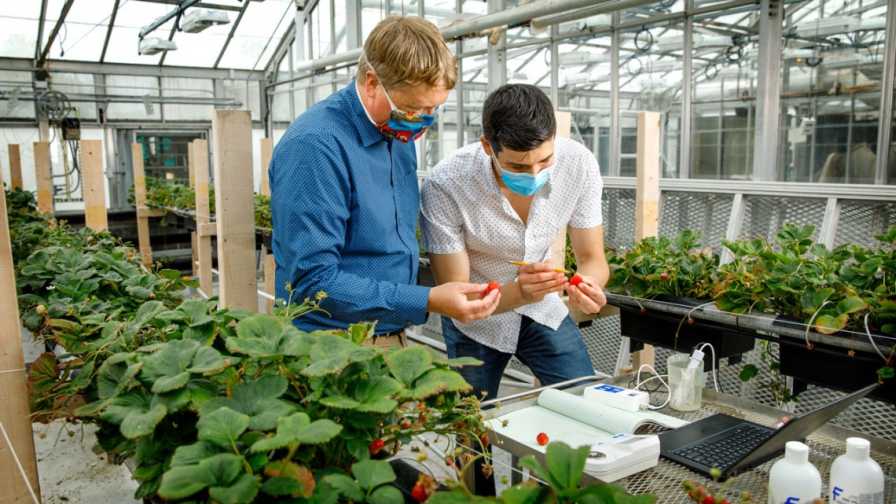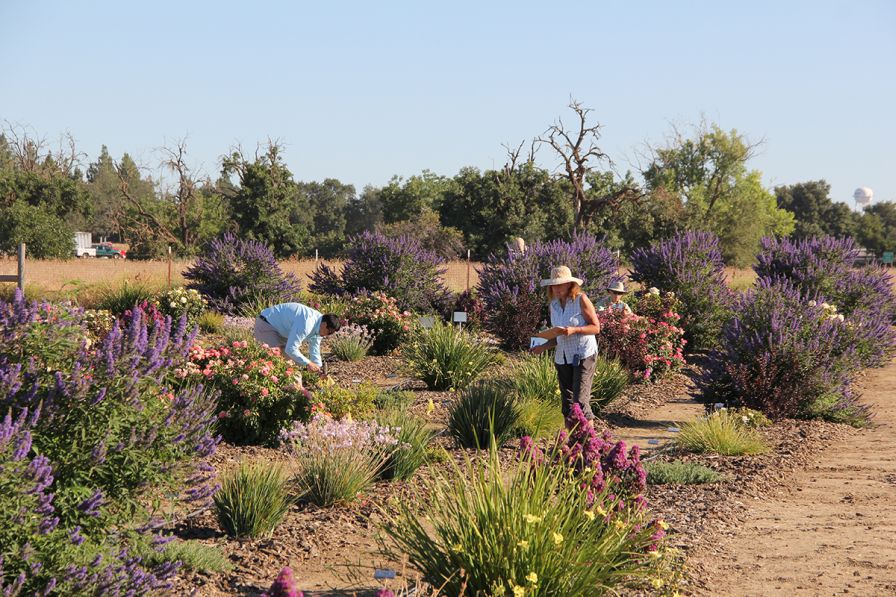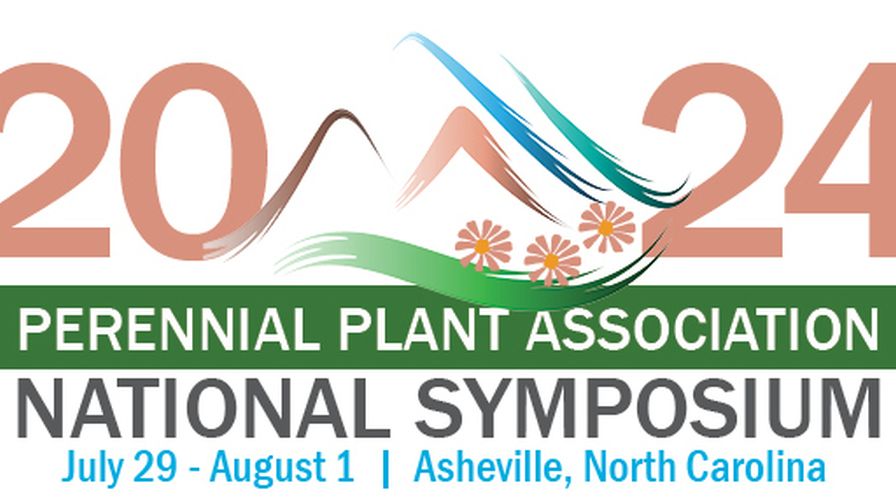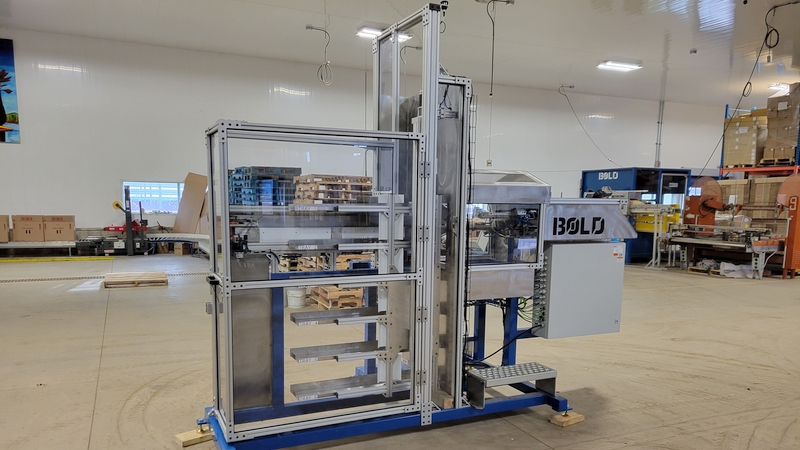New Training Program Will Boost Pipeline of Controlled Environment Ag Expertise

Neil Mattson, left, associate professor of horticulture, works with Ph.D. student Jonathan Allred to collect data from strawberries growing in the Guterman Bioclimatic Laboratory Greenhouse. Photo: Jason Koski, Cornell University
There’s no doubt that controlled-environment agriculture (CEA) production of fruits and vegetables, and the technology that goes into it, is a rapidly growing field. With that growth comes a big need: advanced knowledge of both plant biology and complex infrastructures.
In response to this need, USDA’s National Institute of Food and Agriculture has provided a grant of nearly $500,000 to two horticulture experts in Cornell University’s College of Agriculture and Life Sciences’ School of Integrative Plant Science will help design new CEA training programs to build a skilled workforce pipeline for the industry.
“Growers consistently state that finding well-trained personnel to operate their facilities is among the largest barriers to expansion,” says Neil Mattson, Associate Professor of Horticulture. “This project uses a targeted approach to determine what skill sets are most critical, and it develops several pathways for training – both for traditional college students and for the professional development of existing employees.”
Mattson and Anu Rangarajan, Director of the Cornell Small Farms Program, will collaborate with industry leaders The Ohio State University and its Agricultural Technical Institute, and State University of New York’s Broome Community College to develop a technical training certificate in CEA production. They also plan to create a two-year Associate of Applied Science degree for students enrolled in those schools and for other community colleges to integrate into their curriculum.
Learn more from Cornell University here.









